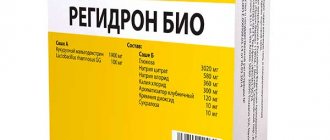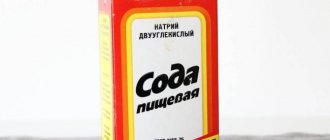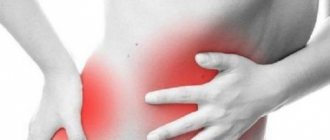Heartburn is an unpleasant symptom that you want to get rid of quickly. After all, eating and feeling full should bring pleasure and relaxation, not torment. Let's find out what medications can help with heartburn.
Heartburn occurs when acidic stomach contents enter the esophagus. The esophageal mucosa is not adapted to such an environment and an unpleasant burning sensation occurs. In the course of life, this condition can happen to anyone through overeating, bending over after eating, or in women during pregnancy. With prolonged symptoms, the esophagus may suffer, erosions, ulcers may develop, and scar tissue may form, which will lead to a narrowing of the lumen. Cell degeneration and the development of neoplasms may occur.
Causes of heartburn
The most common cause of heartburn is gastroesophageal reflux disease (GERD). It occurs in 83% of patients with this problem. In addition to heartburn, symptoms such as:
- regurgitation, esophageal vomiting, belching;
- salivation;
- pain when swallowing food;
- difficulty passing food;
- hoarseness of voice;
- nasal congestion;
- coughing;
- glossitis;
- interruptions in heart function.
In addition to gastroesophageal reflux disease, heartburn may be closely associated with:
- Peptic ulcer of the stomach and duodenum.
- Stomach cancer.
- Functional dyspepsia (a group of diseases that do not lead to changes in the structure of the digestive organs, but cause disturbances in their functions).
Many medications have the property of reducing the tone of the lower esophageal sphincter, which can lead to reflux of contents into the esophagus or themselves cause inflammation. Hormonal, antihypertensive, and anti-inflammatory drugs may have such side effects. Therefore, you need to read the instructions carefully.
Many medications can cause heartburn.
The cause of heartburn can be increased intra-abdominal pressure and conditions leading to this:
- pregnancy;
- ascites;
- flatulence;
- hepato-splenomegaly;
- constipation;
- chronic obstructive pulmonary disease, etc.
Without treating the underlying disease, taking heartburn medications will not only not help in the future, but will also mask the symptoms of the underlying problem.
Pain due to coronary heart disease can be confused with heartburn.
Helicobacter pylor and night heartburn
Scientists have identified a connection between nocturnal hypersecretion of gastric juice and the presence of Helicobacter pylor (H. pylori) bacteria. Interestingly, antisecretory therapy without H. pylori treatment has been found to provide better control of gastric acid secretion. This may be due to nitrogen produced by H. pylori. This is one reason why the benefits and harms of eradicating this bacterium in patients with GERD are still so widely debated.
Heartburn medications
If heartburn does not bother you often, once a week or less, you can take antacids and alginates .
Antacids
This group of drugs neutralizes hydrochloric acid produced by the cells of the gastric mucosa. Reducing acidity in the stomach helps to increase the tone of the lower esophageal sphincter.
Modern combination drugs that additionally have an enveloping and sometimes calming effect include:
- Phosphalugel;
- Almagel A;
- Gastal;
- Maalox;
- Relzer.
The main thing is that these medications do not have rebound syndrome, like regular soda. When using it, the acidity first decreases, and after a few hours it increases again.
Alginates
- Gaviscon;
- Gaviscon Double Action.
Preparations from the alginate group form a gel film on the surface, which protects the mucous membrane from the action of acid and pepsin. Some drugs have a double effect, since they contain an antacid component.
H2-histamine receptor blockers
- Ranitidine;
- Famotidine;
- Nizatidine.
They reduce the production of hydrochloric acid by the parietal cells of the stomach. The advantage of their action is that the secretion associated with food intake is suppressed to a lesser extent, which means the digestive processes will be affected to a lesser extent. At the first symptoms of heartburn, it is possible to take halved doses of H2-histamine receptor blockers. The effect can last up to 12 hours, and there is no need for additional antacid medications.
H2-histamine receptor blockers reduce the production of hydrochloric acid by the parietal cells of the stomach.
Proton pump inhibitors (PPIs)
- Nexium;
- Nolpaza;
- Pariet;
- Omez.
Proton pump inhibitors inhibit the final stage of hydrochloric acid formation in the parietal cells of the stomach. The maximum effect of administration develops on days 5-7 of administration. The secretion of hydrochloric acid is restored on the 2nd day after stopping the intake. With prolonged use of drugs for several years and a severe lack of hydrochloric acid in the stomach, pathogenic flora can develop. Drugs in this group do not have an immediate effect and can only be prescribed by a doctor after diagnosis.
Prokinetics
- Ganaton;
- Motilium;
- Motilak.
If the symptoms of heartburn go along with impaired motor function of the stomach, the organ is sensitive to stretching, prokinetics help accelerate the evacuation of food into the small intestine. The propulsive motility of the stomach increases.
UDCA preparations
- Ursosan.
Sometimes not only the contents of the stomach, but also the contents of the small intestine, such as bile, are thrown into the esophagus. This situation can arise in case of liver diseases, when drugs that reduce acidity in the stomach have already been used, there is no reflux of the acidic part, but there is irritation and heartburn in the esophagus. In this case, ursodeoxychoic acid (UDCA) preparations are recommended. They help the liver restore its function, normalize the formation and flow of bile, and can reduce the symptoms of heartburn. The course of application is from 2 weeks to 6 months.
Antacids
Antacids neutralize the effect of hydrochloric acid in gastric juice. The abundance of dosage forms (tablets, lozenges, oral suspension in a bottle, oral suspension in bags, solutions, powders, gels), pleasant taste and almost complete absence of side effects with occasional use allows this group of drugs to retain one of the important positions in the treatment of acid-related diseases.
NB!
Antacids do not eliminate the cause of heartburn, but they temporarily relieve the discomfort! It is important to convey this to buyers, because only an integrated approach to treating the underlying disease can help get rid of unpleasant symptoms for a long time.
All antacid drugs are divided into absorbable and non-absorbable. Absorbed antacids can have systemic effects, while non-absorbable antacids act primarily in the gastrointestinal tract. This division of antacids is quite arbitrary and is based on the degree of absorption, so some drugs (for example, calcium carbonate and magnesium oxide) are included by different authors in different groups.
Absorbable include :
- sodium bicarbonate (soda - NaHCO3);
- magnesium oxide (burnt magnesia);
- basic magnesium carbonate - a mixture of Mg(OH)2, 4MgCO3, H2O;
- main calcium carbonate - CaCO3;
- mixture - sodium sulfate, sodium phosphate, sodium bicarbonate;
- mixture: calcium carbonate + magnesium carbonate.
Products from this group are almost always present in pharmacy display cases, but they have a limited scope of application and are rarely prescribed by doctors. By entering into a neutralization reaction with hydrochloric acid, they give a very quick but short-lived effect, and the resulting carbon dioxide causes belching and bloating, which precludes their use for GERD. Also, taking absorbable antacids can lead to a secondary increase in the secretion of hydrochloric acid (the “rebound” phenomenon). In this regard, absorbable antacids have practically lost their clinical significance and are used mainly for self-medication. Antacid drugs from this list can be taken occasionally and once, since with long-term use they cause exacerbation and progression of diseases of the digestive tract, such as stomach ulcers.
A homemade antacid - soda - has a negative effect on water-salt metabolism, therefore, with intensive treatment, edema may appear, blood pressure may increase, and signs of heart failure may increase, which limits its use in patients with concomitant pathologies of the cardiovascular system, kidney diseases and in old age .
The group of non-absorbable antacids includes primarily aluminum and magnesium preparations .
- 1st generation - aluminum salts of phosphoric acid - used limitedly due to the possible development of serious side effects;
- 2nd generation - aluminum-magnesium antacids - the most frequently prescribed drugs from the group of non-absorbable antacids, due to the combination of magnesium and aluminum salts, they have a more pronounced antacid effect and better tolerability;
- 3rd generation - aluminum-magnesium preparations with other components , prescribed in cases where a carminative or analgesic effect is additionally required.
The main mechanism of action is associated with the adsorption of hydrochloric acid, so their effect develops more slowly than that of absorbed drugs, but lasts longer - 2.5–3 hours. They are superior to absorbed antacids in neutralizing capacity. Non-absorbable antacids have additional beneficial properties:
- can adsorb pepsin, reducing the proteolytic activity of gastric juice, preventing further destruction of the mucosa;
- bind bile acids that have a damaging effect on the gastric mucosa;
- have a pronounced enveloping effect, thereby protecting the mucous membrane and promoting better regeneration.
Aluminum-containing antacids can cause serious complications when used over a long period of time or when taken in high doses. In the small intestine, they form aluminum phosphate salts, due to which the absorption of phosphates is impaired and hypophosphatemia develops, manifested by malaise and muscle weakness. Severe phosphate deficiency causes osteomalacia and osteoporosis. Aluminum can interfere with bone mineralization, causing toxic effects on osteoblasts. Hypophosphatemia, in turn, promotes increased calcium absorption, the development of hypercalcemia, hypercalciuria and the formation of calcium stones. The accumulation of aluminum in the glomerular membranes of the kidneys can cause the development of renal failure or its aggravation. In this regard, it is undesirable to use aluminum-containing antacids in elderly patients, children, and pregnant women. Aluminum salts contribute to the development of constipation, and magnesium compounds weaken. In modern antacids, the ratio of aluminum hydroxide and magnesium hydroxide is well balanced, which helps to avoid bowel dysfunction.
Today, combined antacids with two or more active ingredients are most widely used. This allows you to vary the speed of onset of the therapeutic effect and duration of action, as well as reduce the number of side effects and improve tolerability.
Preventing recurrent heartburn
There are some rules that can help reduce the symptoms of heartburn.
To prevent heartburn, you need to follow simple rules that will help reduce the load on the stomach and reduce unpleasant symptoms:
- Small portions of food 4-5 times a day.
- Reduce consumption of very spicy, salty, fatty foods.
- Avoid carbonated drinks and foods that cause gas (soda, beer, simple carbohydrates)
- Raise the pillow 15-20 cm while sleeping.
- Try not to eat before bed and not to lie down after eating.
- Give up bad habits (alcohol, smoking).
- Reduce excess weight.
- Do not lean forward too much and do not strain, avoid lifting weights of more than 8-10 kg (do not strain your abdominal muscles).
- Remove corsets and tight belts from your wardrobe, wear looser clothes that do not squeeze your stomach.
Best before date
36 months
Vitamins with similar effects
- Incas gold. Women's Formula (Oral Tablets)
- Immune plus (Oral tablets)
- Yogi-T Stomakh Easy (Herbal tea)
- Marine calcium for children with zinc (Oral tablets)
- Progaine, strawberry flavor (Powder for oral solution)
- Gripp-Heel (Oral tablets)
- Betulair (Capsule)
Description of the vitamin Tablets "Pechaevskie" is intended for informational purposes only. Before starting to use any drug, it is recommended to consult a doctor and read the instructions for use. For more complete information, please refer to the manufacturer's instructions. Do not self-medicate; EUROLAB is not responsible for the consequences caused by the use of information posted on the portal. Any information on the project does not replace consultation with a specialist and cannot be a guarantee of the positive effect of the drug you use. The opinions of EUROLAB portal users may not coincide with the opinions of the site Administration.
Are you interested in Vitamin Tablets “Pechaevskie”? Do you want to know more detailed information or do you need a doctor's examination? Or do you need an inspection? You can make an appointment with a doctor - the Euro lab is always at your service! The best doctors will examine you, advise you, provide the necessary assistance and make a diagnosis. You can also call a doctor at home . Euro lab clinic is open for you around the clock.
Attention! The information presented in the vitamins and dietary supplements section is intended for informational purposes and should not be a basis for self-medication. Some of the drugs have a number of contraindications. Patients need to consult a specialist!
If you are interested in any other vitamins, vitamin-mineral complexes or dietary supplements, their descriptions and instructions for use, their analogues, information about the composition and form of release, indications for use and side effects, methods of use, dosages and contraindications, notes about the prescription of the drug for children, newborns and pregnant women, price and consumer reviews, or you have any other questions and suggestions - write to us, we will definitely try to help you.
Conclusion
Self-medication can be practiced for mild, rare symptoms. For this purpose, drugs from the group of antacids and alginates are used, and a single dose of Ranitidine 75 mg is also possible. If heartburn bothers you more than once a week , you need to consult a doctor . Taking medications should not be uncontrolled. Self-administration should not last longer than 7-10 days. Otherwise, you may not notice other serious diseases in time, one of the symptoms of which may be heartburn.
Why does heartburn hurt?
The reflux of gastric juice with a food bolus into the esophagus, where normally there should be an alkaline environment, leads to irritation of the mucous membrane. The epithelium of the esophagus does not have a special protective layer from the aggressive effects of acid, which is located in the stomach. Therefore, the mucous membrane is damaged6. Erosion is formed - surface defects that do not affect the muscular layer of the esophagus. These wounds are additionally exposed to acid, which causes pain.
Heartburn is characterized by pain behind the sternum and in the epigastric region. It is quite easy to confuse it with the heart. A specific condition for pain in the esophagus is a direct connection with food intake7. In addition, heartburn and stomach pain worsen when bending over or in a horizontal position.
Common Causes of Stomach Problems
To choose an effective and efficient drug for the stomach, you need to determine the origin of the problem. It can be:
- chronic pathologies;
- acute conditions that cannot be managed without medical care;
- minor temporary disturbances.
Taking a more detailed look at the problem, five main reasons can be identified.
Poor nutrition
Eating products of questionable quality, fast food and an unbalanced diet can provoke periodic spasms. When you overeat, internal pressure builds up, causing heartburn. Regular consumption of legumes leads to gas formation. Foods high in toxins (melons, fruits) can cause poisoning of the body of varying severity.
Impact of stress
Stress factors can provoke acute and unexpected cramps in the stomach. The cause is extreme situations, not chronic and prolonged depression. In such situations, it is recommended to take herbal soothing tea, an antispasmodic.
Antibiotic therapy
Any medications taken for a long period of time have a positive and at the same time negative effect on a person. Even if therapy is not carried out in relation to the gastrointestinal tract, it is he who primarily suffers from side effects. Oral antibiotics enter the stomach, where they are divided into individual components that are distributed according to their intended purpose.
As a result, the microflora of the digestive system is disrupted, which causes unpleasant sensations. The most pronounced side effects are with cephalosporin and tetracycline. Even with a shortened course of treatment they:
- destroy beneficial microflora;
- provoke pH imbalance.
Probiotics can help in such cases. You can also normalize stomach acidity by regularly consuming fermented milk products.
Peptic ulcer
An intestinal or stomach ulcer occurs for reasons such as:
- chronic stress;
- bacterial infection;
- entry into the gastrointestinal tract of aggressive chemical components.
In a chronic condition, pain is almost imperceptible. It progresses during periods of exacerbation after consuming sour or spicy foods, alcohol, and various spices. In critical cases, acute pain may be accompanied by internal bleeding.
Gastritis
This is an inflammatory process that affects the gastric mucosa. The disease can be chronic with regular pain or acute with sudden attacks that quickly appear and disappear. Treatment of gastritis is recommended to begin at the earliest stages.
What other symptoms might bother you?
The causes of heartburn and nausea after eating can be either physiological or indicate serious illnesses. Additionally, symptoms such as:
- one-time vomiting;
- pressure in the abdomen, feeling of fullness;
- pain in the upper abdomen;
- pain behind the sternum (with the formation of erosions and ulcers of the esophagus);
- belching acid;
- sour feeling in the mouth5.
Warning symptoms requiring professional intervention:
- burning is accompanied by dark vomit like “coffee grounds” or blood;
- the appearance of tarry stools (black);
- the symptom bothers you continuously for several days;
- difficulty swallowing food, shortness of breath;
- severe abdominal pain, associated and not associated with heartburn;
- continuous noticeable weight loss for no apparent reason;
- connection of heartburn not with food intake, but with medications3.
If at least one of the listed manifestations occurs, you should undergo a special examination to identify the exact cause of the condition.
Diet for heartburn and stomach pain
Therapy for burning sensation behind the sternum begins with lifestyle changes, including nutrition. Features of the diet to prevent weakening of the esophageal sphincter5:
- Products not recommended for consumption: carbonated drinks, coffee, strong tea, chocolate, baked goods, fast food, fatty foods, canned food, smoked meats, fruit juices, tomatoes and their derivatives, seeds, nuts, cabbage, sour fruits, black bread, pasta, radish, onion.
- It is recommended to drink enough water per day.
- It is recommended to enrich the diet with vegetable fats, such as legumes, and limit animal fats.
- The diet should be enriched with various vegetables, steamed or baked.
- The use of large quantities of spices is not recommended. Spicy foods will be especially harmful.
Additional recommendations regarding diet:
- Meals should be regular (3-4 times a day in the absence of other recommendations from a doctor).
- Portions should be small.
- After eating, a short walk in the fresh air is recommended.
- After eating, it is not recommended to bend over or lie down.
- It is recommended to sleep with the upper half of the body elevated.
- Clothes should be loose, without tight belts.
Also, to successfully combat a burning sensation in the chest, you need to stop smoking, drinking alcohol, and increase physical activity.










